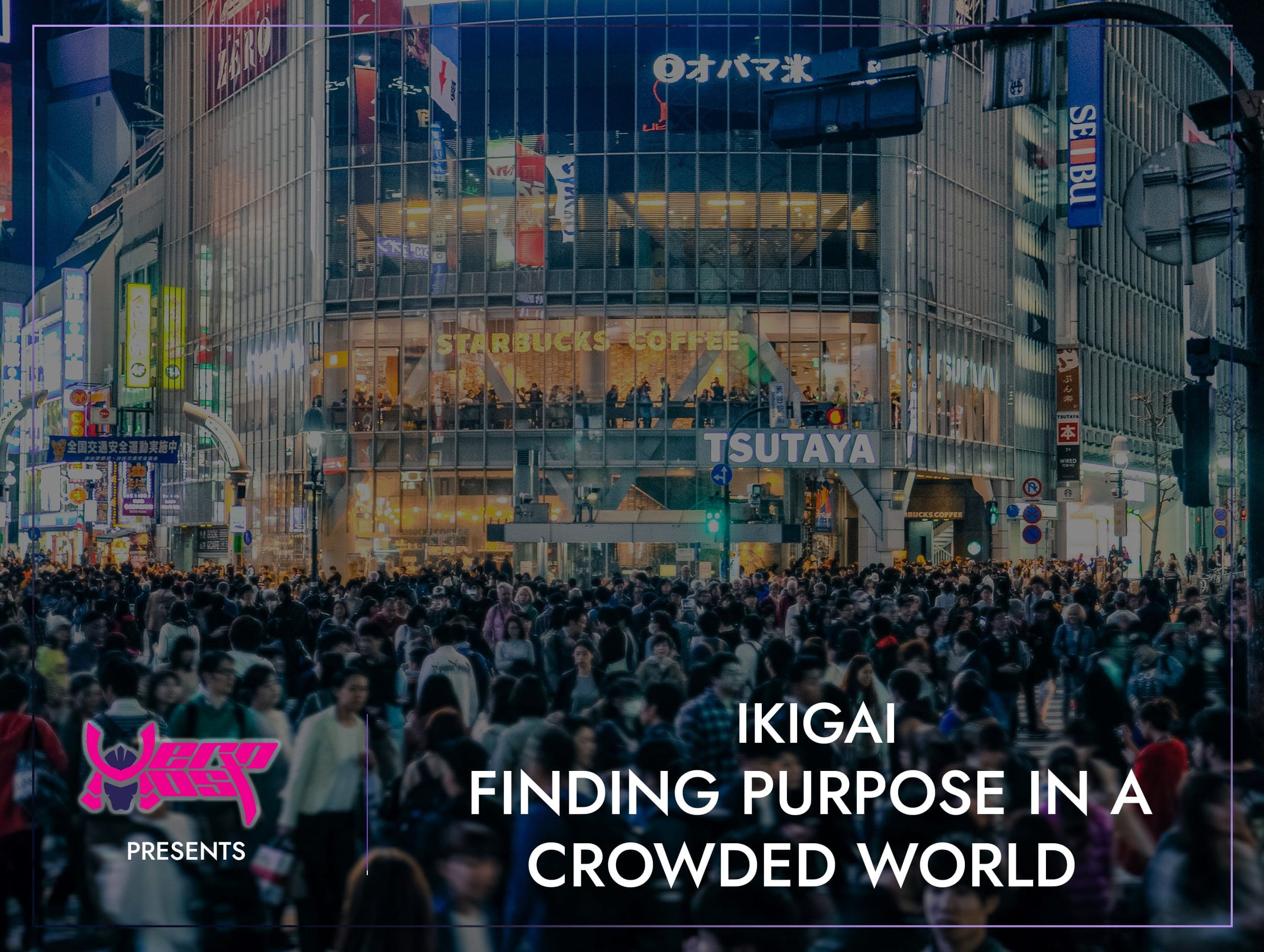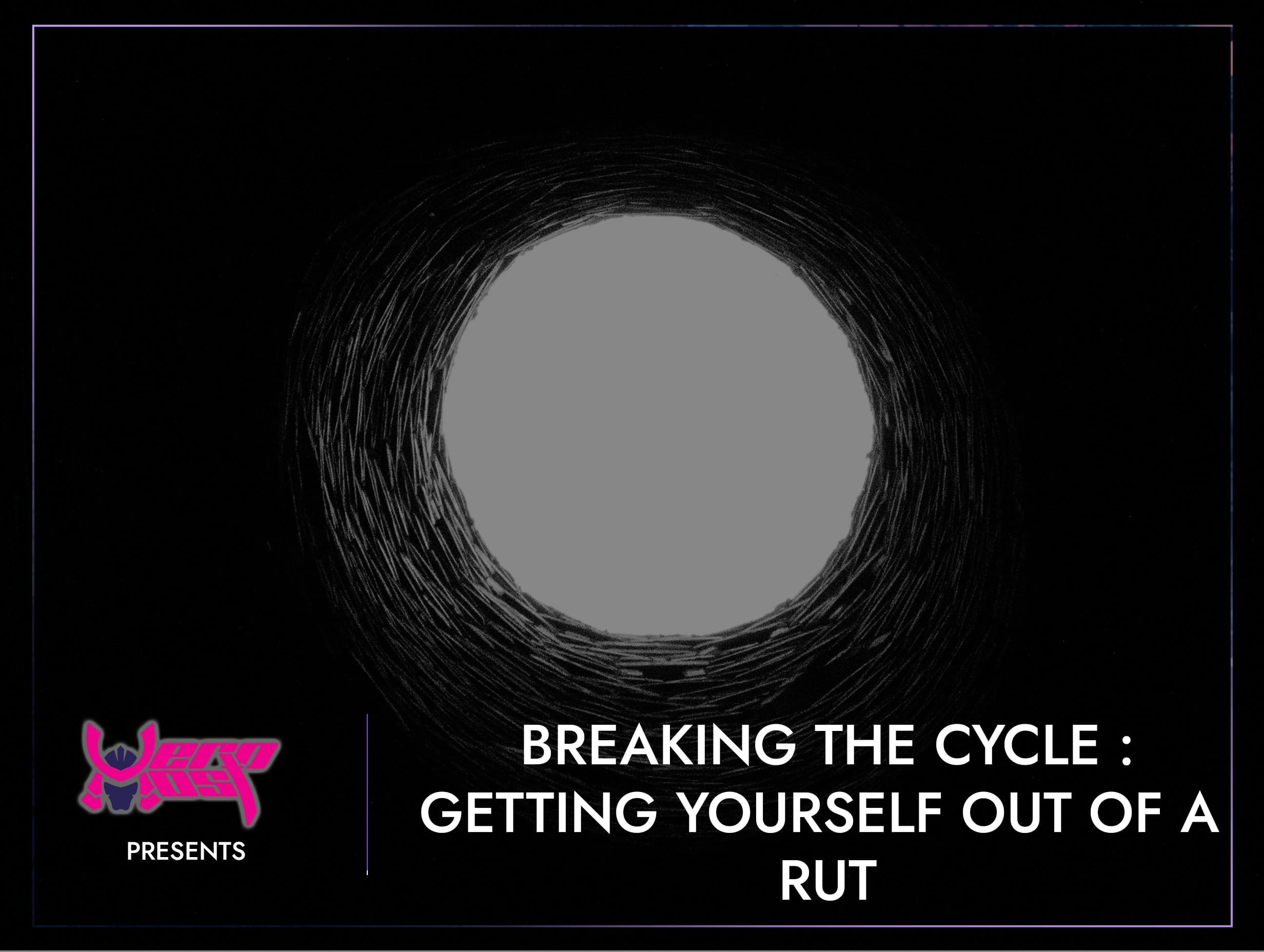Ikigai – The Japanese Principle of Finding Purpose
- Home
- Lessons From Asia
- Ikigai – The Japanese Principle of Finding Purpose

- Mikey Ryu
- February 1, 2024
- 0
Ikigai – The Japanese Principle of Finding Purpose
Ikigai – Finding Your Purpose
Navigating the modern world, replete with distractions, trials, and tribulations, presents a considerable challenge in maintaining focus. In the following exploration, we delve into the profound concept of Ikigai, originating from Japan, offering invaluable insights to discover your life’s purpose and embrace a profoundly fulfilling and meaningful existence. Drawing inspiration from Japan’s philosophy of perpetual motion and purposeful engagement, this blog encourages you to stay in constant forward momentum, steadily advancing toward your goals.
What is Ikigai?
The term “Ikigai,” which translates to “a reason for being,” and comes from the words is conceptualized through four key elements: passions, skills, societal needs, and financial viability. These components are interlinked, forming the foundation of the philosophy that guides individuals toward discovering their life’s purpose. Embracing the concept of Ikigai has proven instrumental in assisting numerous individuals in cultivating fulfilling and meaningful lives.
The Elements:
What You Love:
The first element of Ikigai, “what you love,” emphasizes the importance of passion and genuine enthusiasm in one’s pursuits. Identifying and engaging in activities that evoke a deep sense of joy and fulfilment contribute significantly to a meaningful life. This component encourages individuals to explore their interests, hobbies, and creative outlets, aligning their actions with personal values and desires. By embracing what brings genuine happiness, individuals are more likely to invest time and energy in activities that resonate with their inner selves. This element recognizes that a key aspect of finding purpose lies in cultivating a connection to one’s passions, fostering a sense of contentment and authenticity in life’s journey. Ultimately, pursuing what one loves is integral to the Ikigai philosophy, guiding individuals towards a more fulfilling existence.
What You Are Good at:
The second element of Ikigai, “what you are good at,” underscores the significance of honing one’s skills and abilities. It prompts individuals to self-reflect and identify their strengths and talents, recognising that leveraging these capabilities contributes not only to personal growth but also to the broader community. Embracing what one excels at enables the cultivation of expertise, fostering a sense of competence and confidence. This element emphasizes the alignment of passion with proficiency, acknowledging that true fulfilment often arises from the intersection of what one loves and what one is proficient in. By investing time and effort in developing and utilizing their strengths, individuals can enhance their overall sense of purpose and effectiveness, contributing positively to both personal and collective well-being within the context of Ikigai.
What The World Needs:
The third element of Ikigai, “What the World Needs,” directs attention outward, encouraging individuals to consider the broader impact of their actions on the world around them. This facet highlights the importance of contributing to the well-being of society and addressing societal needs. It prompts individuals to explore ways in which their skills and passions can be utilized to make a positive difference. By aligning personal aspirations with the betterment of the community or the world at large, individuals can find profound meaning and purpose. This element recognizes that a fulfilling life extends beyond personal satisfaction, emphasizing the interconnectedness of individuals with the greater social fabric. It underscores the notion that contributing to a higher purpose, addressing societal challenges, and meeting the needs of others are integral components of the Ikigai philosophy, fostering a sense of purpose and fulfilment.
What You Can Be Paid For:
The fourth element of Ikigai, “What you can be paid for,” introduces the practical dimension of sustaining oneself through the application of one’s skills and passions. It acknowledges the economic aspect of life and the importance of finding a balance between personal fulfilment and financial viability. This element encourages individuals to explore avenues where their unique abilities and interests align with opportunities for economic compensation. Recognising the value of one’s contributions in a professional context allows for a sustainable and stable foundation. It underscores the idea that financial stability when coupled with personal fulfillment, enhances overall well-being. In the context of Ikigai, this element emphasises the harmonious integration of personal passions and skills with economic considerations, promoting a balanced and purposeful approach to both professional and personal aspects of life.
How to Find Your Ikigai:
Discovering your Ikigai involves a thoughtful exploration of your inner self, passions, skills, societal needs, and financial considerations. Here’s a step-by-step guide to help you embark on the journey of finding your Ikigai:
Self-Reflection:
Begin by reflecting on your values, interests, and what brings you genuine joy. Identify activities that make you lose track of time and that resonate deeply with your sense of fulfilment.
Assess Your Skills:
Take inventory of your skills and strengths. Consider both your professional expertise and personal talents. Recognise areas where you excel and feel a sense of accomplishment.
Identify Societal Needs:
Explore the world around you and identify pressing issues or areas where your skills and passions could contribute positively. Consider how your unique abilities align with making a meaningful impact on others or society.
Evaluate Economic Opportunities:
Assess potential avenues where your passions and skills can be translated into viable economic opportunities. Explore professions or industries that align with your Ikigai and offer financial sustainability.
Look for Synergies:
Seek the intersection of what you love, what you are good at, what the world needs, and what you can be paid for. The sweet spot where these elements converge is your Ikigai. Look for activities or pursuits that fulfil multiple aspects of this framework.
Experiment and Adapt:
Ikigai is a dynamic concept that may evolve over time. Be open to experimentation and adaptation. Try different paths, learn from experiences, and refine your understanding of your Ikigai as you grow.
Seek Guidance:
Engage in conversations with mentors, friends, or professionals who can provide insights and guidance. External perspectives can offer valuable clarity on your strengths, passions, and potential avenues for contribution.
Stay True to Yourself:
Embrace authenticity in your pursuit of Ikigai. Align your actions with your values and be true to your passions and skills. This authenticity will contribute to a more fulfilling and purpose-driven life.
Remember, finding your Ikigai is a lifelong journey. It’s about cultivating a harmonious balance between what you love, what you are good at, what the world needs, and what you can be paid for. As you navigate this path, allow yourself the space to grow, adapt, and continually refine your understanding of your unique purpose in life.
In Conclusion:
As you navigate this journey, seek not only personal satisfaction but also a deeper connection with the world and those around you. By aligning your passions and skills with the needs of the world, you not only find personal fulfilment but also contribute meaningfully to the larger tapestry of human existence.
In essence, your Ikigai is a dynamic and evolving concept that reflects the ever-changing landscape of your life. Embrace the process, stay true to your authentic self, and allow the pursuit of Ikigai to be a guide in crafting a purposeful, meaningful, and fulfilling existence.
Search
Categorys
- Branding (12)
- Business Growth Guides (3)
- Business Insights (3)
- Content Marketing (43)
- Domain Authority (19)
- Email Marketing (28)
- Google Analytics & Search Console (5)
- Hack or Not (2)
- Hero Host News (0)
- Inbound Marketing (32)
- Lessons From Asia (40)
- Marketing Guides (11)
- Martial Arts Journey (14)
- Outbound Marketing (8)
- Search Engine Optimisation (SEO) (41)
- Social Media Marketing (38)
- Web Design (20)
- Website Hosting (4)
- Wordpress (2)






